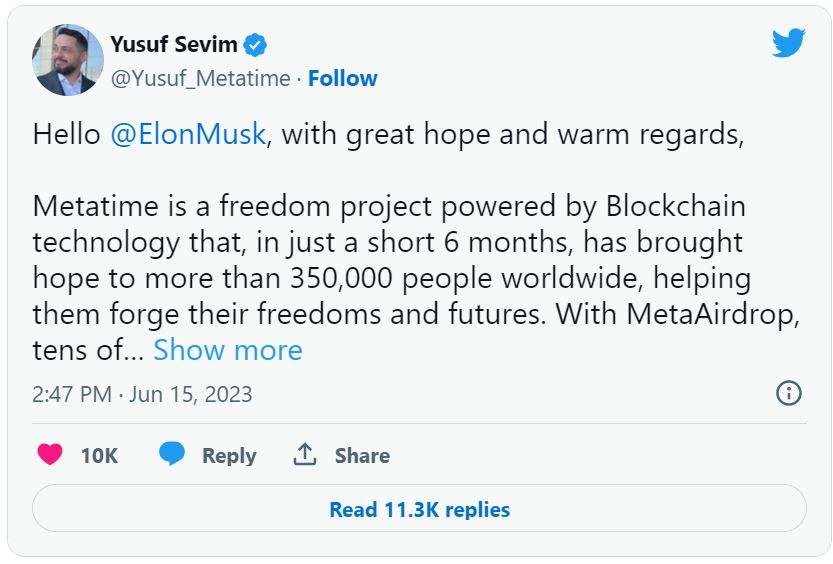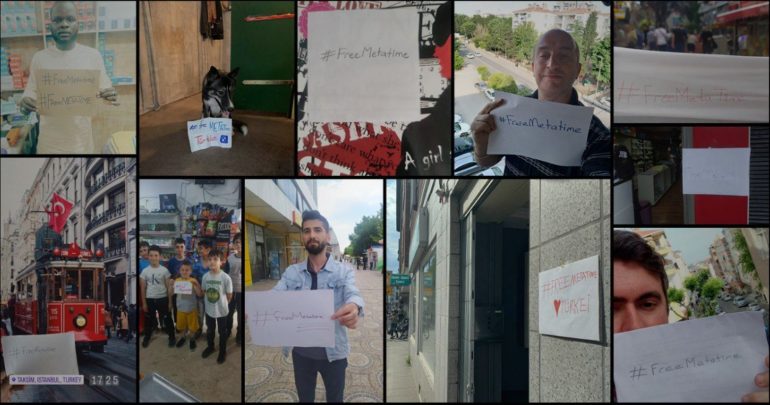You may have stumbled upon the trending hashtag #FreeMetaTime on various social media platforms. This hashtag pertains to the recent controversy involving the Turkish crypto project, MetaTime. The project, instead of rejoicing over its community expansion through a recent airdrop incentive program, finds itself and its community caught in an online storm of debate, all encapsulated in the hashtag, #FreeMetaTime.
MetaTime, a blockchain project focused on expanding financial freedoms and opportunities through its digital currency, MetaTimeCoin ($MTC), recently experienced an unexpected setback. Following the announcement of a major airdrop event to reward community members for promoting the project, an estimated 100,000 MetaTime-associated Twitter accounts were blocked or completely deleted. According to the MetaTime community, this was a sudden, unilateral action taken by Twitter.
Adding to the significance of this issue is the fact that MetaTime is not a small, niche community. On the contrary, it is a thriving platform with close to 340,000 registered users worldwide. This extensive user base not only underscores the global reach of the project, but it also amplifies the impact of the ongoing social media controversy. The #FreeMetaTime movement, thus, represents the voices of hundreds of thousands of MetaTime users who have been affected by this unprecedented action.
Initially, disgruntled members directed their outrage towards the MetaTime team, mistakenly blaming them for the mishap. Yet, as more information surfaced, it became clear that Twitter was responsible for this unanticipated action. With Twitter’s interference becoming apparent, the ire of the MetaTime community pivoted towards the social media giant, with accusations of discriminatory practices brewing. This discontentment has since given rise to a global outcry, symbolized by the hashtag #FreeMetaTime.
In light of these events, MetaTime’s CEO, Yusuf Sevim, reached out to Elon Musk, through a tweet, presenting the incident as an infringement on their freedom of thought and expression, posing a broader question about who should regulate these freedoms online.
Sevim’s plea to Musk went beyond MetaTime’s interest, extending to the larger issues of digital freedom and the right to expression. Sevim called upon Musk as a respected innovator and leader, appealing to him to help defend their cause. He emphasized the broader implications of this incident, suggesting that it could be a precursor to further infringements on digital freedoms.
Sevim’s message and the #FreeMetaTime movement resonated with the online community. The tweet gained massive traction, receiving almost 10K likes, 9K retweets, and attracting a staggering 850K views. The #FreeMetaTime hashtag has since become a symbol of a broader struggle against online censorship and for digital rights.

With the MetaTime controversy unfolding, the debate around social media censorship and freedom of speech online has once again come to the forefront. As cryptocurrency and blockchain technology continue to evolve, the digital world will need to grapple with these issues, ensuring that online freedoms and rights are upheld. As we continue to watch the #FreeMetaTime movement unfold, one thing is clear – the call for digital freedom is louder than ever.

